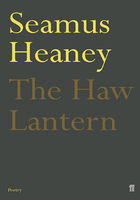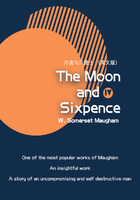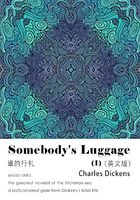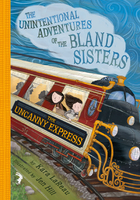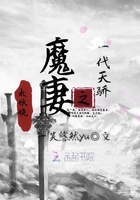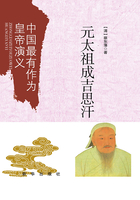The Cadet
IN the years that I lived with my father, before I entered Leoncio Prado in 1950, innocence, the ingenuous vision of the world that my mother, my grandparents, and my aunts and uncles had inculcated in me, vanished. In those three years I discovered cruelty, fear, bitterness, a tortuous and violent dimension that is continually, at times more and at times less, counterbalanced by the kind and generous side of every human destiny. And it is probable that without my progenitor's contempt for literature I would never have pursued so obstinately what at the time was a game, but was gradually to turn into an obsessive and pressing need: a vocation. If in those years I had not suffered so much when he was around and if I hadn't felt that it was the best way I could think of to pull the wool over his eyes, I probably wouldn't be a writer today.
That I would be entering the Leoncio Prado Military Academy had been on my father's mind ever since he brought me to live with him. He would announce it to me when he gave me a tongue-lashing and when he bewailed the fact that the Llosas had brought me up like a spoiled child. I don't know whether he was well aware of what sort of an education pupils at Leoncio Prado received. I imagine he wasn't, or else he wouldn't have placed such high hopes in it. His idea was the same as that of many middle-class fathers with sons who were disobedient, rebellious, inhibited, or suspected of being queer: that a military college, with instructors who were career officers, would make of them young men who were disciplined, brave, respectful of authority, and with their balls in the right place.
Since in those days the idea of someday being just a writer never entered my head, when I was asked what I would be when I was grown up, my answer was: a sailor. I liked the sea and adventure novels, and being a sailor seemed to me to be a good way to combine those two things I was so fond of. Entering a military academy whose pupils received the rank of officers in the reserves was an advantageous jumping-off place for someone who aspired to enter the Naval Academy.
So when, on my completing the second year of secondary school, my father enrolled me in an academy on the Jirón Lampa, in the heart of Lima, to prepare me for the entrance exam to Leoncio Prado, I was all for his plan for me. To be a boarding student, to wear a uniform, to parade on the twenty-eighth of July along with the air corps, navy, and army cadets, would be fun. And living far away from him, all week long, would be even better.
The entrance exam consisted of physical and academic tests that took three whole days, in the vast area occupied by the school, on the edge of the cliffs of La Perla, with the sea roaring at the foot of them. I passed the exams, and in March 1950, just a few days before my fourteenth birthday, I appeared at the Academy with a certain excitement over what I was going to find there, wondering if those months of being confined to the school grounds until the first leave wouldn't be a big hardship. (Third-year cadets—those who had completed two years of secondary school—got to leave for the first time on the seventh of June, Flag Day, after having learned the rudiments of military life.)
There were some three hundred of us perros—plebes in the third year of the class that would graduate three years later, divided into eleven or twelve sections, according to our height; I was among the tallest, so that I was placed in the second section. (In my fourth year, I would be transferred to the first one.) Three sections formed a company, under the command of a lieutenant and a sergeant major. The lieutenant of our company was named Olivera; our noncommissioned officer, Guardamino.
Lieutenant Olivera made us get into formation, took us up to our dormitories, and assigned us our beds and lockers—they were bunk beds and I was assigned the top of the second one from the entrance. He made us change out of our civilian clothes into our everyday uniforms—a shirt and trousers of green twill, a field cap, and coffee-colored half boots—and then, lining us up in formation again in the courtyard, he gave us the basic instructions concerning proper respect, the way to salute, and the way to behave toward our superiors. And then everyone in our year was lined up in company formation so that the head of the academy, Colonel Marcial Romero Pardo, could welcome us. I am sure that he spoke of "the supreme values of the spirit," a subject that continually cropped up in his speeches. Then we were taken to lunch, in the enormous pavilion on the other side of an esplanade covered with grass on which a vicu?a was wandering about, and where we saw our superiors for the first time: the cadets of the fourth and fifth years. We all contemplated with curiosity and slight alarm the four-year cadets, since they would be the ones who would initiate us. We perros knew that the hazing was the bitter test that we had to go through. Now, once we'd finished this meal, the fourth-year cadets would take out on us what had been done to them, on a day like today, the year before.
When lunch was over, officers and noncommissioned officers disappeared, and the fourth-year cadets flung themselves on us like a flock of ravens. We "whities" were a small minority in the vast ocean of Indians, mestizos, blacks, and mulattos, and aroused the inventiveness of our hazers. A group of cadets took me and a boy from a section of "shorties" to a fourth-year dormitory. They made us go through a "right angle" contest. We had to kick each other in the backside as we doubled over alternately; the one who kicked more slowly than the other was in turn kicked, hard, by the hazers. Afterward, they made us open our trousers fly and take out our penis and masturbate: the one who came first would be let go and the other would stay behind to make our torturers' beds. But, however hard we tried, fear kept us from getting an erection, and finally, bored by our incompetence, they took us out to the soccer field. They asked me what sport I went in for: "Swimming, sir." "Swim on your back from one end of the athletic field to the other, then, perro."
I still have a sinister memory of that hazing, a savage and irrational ceremony which, beneath the appearance of a virile game, of a rite of initiation into the rigors of military life, served to allow the resentments, envies, hatreds, and prejudices that we had inside us to turn, without inhibitions, into a sadomasochistic bash. On that very first day, in the hours that the hazing lasted—it went on during the days that followed, in a more moderate way—I discovered that the adventure at Leoncio Prado wasn't going to be what, led astray by novels, I had imagined, but something more prosaic, and that I was going to detest boarding school and military life, with its mechanical hierarchies based on chronology, the authorized violence that they signified, and all the rites, symbols, rhetorical devices, and ceremonies that constitute it, and that we, young as we were—fourteen, fifteen, sixteen years old—only half understood and distorted by putting it at times to comic and at times to cruel and even monstrous uses.
My two years at Leoncio Prado were quite hard and I spent a number of horrible days there, above all on weekends when I was being punished—the hours became immeasurably long, the minutes endless—but, looking back from a distance, I think that that couple of years were more beneficial than harmful to me. Although not for the reason that had led my father to enroll me there. On the contrary. During 1950 and 1951, shut up behind those bars corroded by the dampness of La Perla, on those gray days and nights filled with the gloomiest fog imaginable, I read and wrote as I had never done before and began to be (even though at the time I didn't know it) a writer.
Moreover, I owe to Leoncio Prado the discovery of what the country where I had been born was like: a society very different from that tiny one, marked off by the boundaries of the middle class, in which I had lived up until then. The Leoncio Prado Academy was one of the few institutions—perhaps the only one—that reproduced on a small scale the ethnic and regional diversity of Peru. Enrolled there were youngsters from the jungle and from the highlands, from every departamento, every race, and every economic stratum. As it was a state school, the fees for room, board, and tuition we paid were minimal; moreover, there was an ample system of scholarships—a hundred or so a year—that made the school accessible to boys from humble families, of peasant origin, or from marginal city neighborhoods and towns. A large part of the tremendous violence—what seemed to me tremendous but for other cadets less fortunate than I was their natural way of life—stemmed precisely from that mixture of races, regions, and economic levels of the cadets. The majority of us brought to this cloistered space the prejudices, complexes, animosities, and social and racial rancors that we had sucked in with our mother's milk. All these found expression at Leoncio Prado in personal and official relations, and found ways of venting themselves in rites and activities, like the hazing or the military hierarchies among the students themselves, which legitimized the bullying and the abuse. The scale of values erected around the basic myths of machismo and virility served, moreover, as a moral coverup for that Darwinian philosophy or law of the jungle that ruled at the school. To be brave, that is to say, loco, was the supreme form of manliness, and to be a coward the most abject and base. Any boy who denounced a superior for the mistreatment of which he was a victim merited the generalized contempt of the cadets and exposed himself to reprisals. The lesson was soon learned. During the hazing, some fourth-year cadets made one of my section mates, named Valderrama, climb up to the top of a ladder and then moved it so as to make him tumble down. He had a bad fall and when the ladder itself fell it cut off one of his fingers against the edge of a washbasin. Valderrama never told on the guilty parties and we all respected him for it.
There were a number of ways of proving one's manhood. Being strong, daring, and aggressive, knowing how to fight—to "get one off" was the expression that summed up marvelously well that ideal, with its mixture of sex and violence—was one of them. Another, to dare to defy the rules, engaging in bold or wild exploits which, if they were discovered, meant being expelled. To bring off such feats gave one entry into the coveted category of loco. To be loco was a blessing, because then it was publicly recognized that one would never belong to the much-feared category of huevón, to be yellow-bellied, or cojudo, without balls.
To be huevón or cojudo was to be chicken: not daring to butt or punch out someone who came to batirlo—to rag you or do you harm; not to know how to fight, not to dare, out of timidity or lack of imagination, to tirar contra—to sneak out of school after retreat, so as to go to a movie or a party, or at least to hide out somewhere to smoke or play dice in the arbor or in the abandoned building by the pool instead of going to classes. All those who belonged to this category were the scapegoats, whom the locos mistreated by word and by deed for their amusement and that of the others, urinating on them when they were asleep, demanding a certain quota of cigarettes, short-sheeting them, and making them suffer all sorts of humiliations. A good part of these doings were the typical deviltry of adolescence, but the characteristics of the school—being kept shut up, the heterogeneous composition of the student body, the military philosophy—frequently exacerbated mere pranks, turning them into extremes of real cruelty. I remember a sad sack of a cadet whom we nicknamed Fish Eggs. He was skinny as a rail, pale, and very timid; worst of all, at the beginning of the year, one day when the fearful Bolognesi—he had been a classmate of mine at La Salle and when we entered Leoncio Prado he showed himself to be an unrestrained loco by nature—tormented him with his taunts, he burst into tears. From that day on, he became the laughingstock of the company, whom anyone could insult or mistreat to show everyone, himself included, how macho he was. Fish Eggs finally turned into a sluggard, with no initiative, voiceless and almost lifeless: one day I saw him spat on by a loco, and his only response was to wipe his face off with his handkerchief and continue on his way. Of him, and of all the huevones, it was said that "their will had been broken."
In order not to have one's will broken, it was necessary to do daring things, so as to earn the good feeling and the respect of the others. I began doing them from the start: from the masturbation contests—the one who ejaculated first or who shot his sperm the farthest—to the famous escapades at night, after lights out. Tirar contra—going over the wall—was the most daring thing you could do, since anyone who got caught was expelled from the academy, without appeal. There were places where the wall was lower and could be scaled without risk: near the stadium, near La Perlita—a refreshment stand whose owner, a man from the highlands, sold us cigarettes—and near the abandoned building. Before taking off, you had to make a deal with the student on dormitory guard duty so that, when he reported on how many were present, he always included you. This could be managed by paying him off in cigarettes. After the bugle sounded retreat and the lights went out in the dorms, stealing out, then hugging the wall like a shadow, you had to go across the courtyards and playing fields, at times on all fours or crawling, until you reached the wall you'd chosen. After jumping over it, you made a quick getaway by cutting through the small farms and the open country that surrounded the school in those days. You took off to go to the Bellavista movie theater, to one of those in Callao, to some mediocre party not worth mentioning in those lower-middle-class neighborhoods, inhabited by impoverished families that had once been middle class and were now almost proles, where being at Leoncio Prado had a certain prestige (it had none, on the other hand, in San Isidro or Miraflores, where it was considered a school for half-breeds), and, at times—although this was seldom because they were quite far away—to go prowl around the brothels down by the port. But many times you went over the wall because it was risky and exciting and because you felt good when you got back in without having been discovered.
The most dangerous part was getting back in. You could run into the patrols of soldiers who made the rounds of the school, or learn, after jumping back over the wall, that the officer on guard had discovered the contra—the escape—because of the bricks or the planks that we used to scale the wall, and was waiting, crouching in the dark, for those who'd gone over the wall to come back so as to aim his flashlight at them and order: "Halt right there, cadet!" During the trip back, your heart pounded and the least noise or shadow, until you were curled up back in bed in the dorm, made you panic.
Tirar contra had great prestige and the boldest contras, surrounded by a legendary aura, were the talk of the school. There were famous contreros, who knew every inch of the hundreds of meters of walls of the school, and to tirar contra with them gave you a sense of security.
Another important activity was stealing articles of clothing. We had review once a week, usually on Fridays, the night before we got out on leave for the weekend, and if the officer found cigarettes in a locker, or if one or another of the regulation articles of clothing—ties, shirts, trousers, field caps, boots, or the heavy woolen jacket that we wore in winter—was missing, the cadet was confined to quarters for the weekend. To lose an article of clothing was to lose one's freedom. When someone stole a piece of clothing from you, you had to steal another one or pay one of the locos to do the job for you. There were experts at it, with a picklock in their pocket that opened all the lockers.
Another way of being a real man was to have lots of balls, boast of being a "mad jock with a big cock," who made out with countless females, and who, moreover, could "fire three shots in a row." Sex was an obsessive subject, the object of jokes and affectations, of shared secrets and of the dreams and nightmares of the cadets. At Leoncio Prado, sex and sexuality gradually lost for me the disgusting, repellent aspect that they had had ever since I found out how babies were born, and while there I began to think and fantasize about women without displeasure or guilt feelings. And to feel ashamed of being fourteen years old and never having made love. I didn't tell this, of course, to my pals, to whom I boasted of being a "mad jock with a big cock" too.
I had a friend from Leoncio Prado, Víctor Flores, with whom I used to box for a while alongside the swimming pool, on Saturdays after maneuvers. We confessed to each other one day that we had never gone to bed with a woman, and we decided that the first day we had weekend passes we would go to Huatica. So we did, one Saturday in June or July of 1950.
The Jirón Huatica, in the working-class district of La Victoria, was the street where the whores were. The little rooms were lined up, one adjoining the other, on both sidewalks, for some seven or eight blocks below the Avenida Grau. The whores—polillas, they were called—were at the little windows, showing themselves to the crowd of presumed clients who were filing by, looking them over, stopping now and again to discuss the price. A strict hierarchy was the rule along the Jirón Huatica, according to the block the whores were located in. The most expensive block—where the French whores were—was the fourth one; on the third and the fifth block, the prices dropped, then dropped further, until on the first, old and miserable whores, human wrecks, could be had for two or three soles (the ones on the fourth charged twenty). I remember very well that Saturday when Víctor and I went, with our twenty soles in our pockets, nervous and excited, to have the great experience. Smoking like chimneys so as to look older, we went up and down the block where the French whores were several times, without being able to make up our minds to go in. Finally, we let ourselves be persuaded by a very talkative woman, with dyed hair, who leaned halfway out onto the street to charm us into it. Víctor went first, then I went in. The room was tiny, with a bed, a basin full of water, a little chamber pot, and a light bulb enveloped in red cellophane that shed a more or less blood-colored light. The woman did not undress. She raised her skirt and, seeing me so disconcerted, burst out laughing and asked me if this was the first time. When I said yes, she was delighted, because, she assured me, giving a boy his first fuck brought good luck. She had me come closer and murmured something like "You're very afraid now but afterwards how pleased you're going to be." Her Spanish was odd, and when it was all over she told me she was Brazilian. Feeling that we were real men, Víctor and I then went off to have a beer.
I returned to Huatica many times in those two years at Leoncio Prado, always on Saturday afternoons and always to the block with the French whores. (Years later, the poet and writer André Coyné would swear to me that their being "French" was slanderous, since they were really Belgian and Swiss.) And I went several times to a slender and pretty polilla—a vivacious little brunette, good-humored and able to make her transitory visitors feel that making love with her was something more than a mere business transaction—whom we had baptized "Goldifeet" because, as a matter of fact, hers were tiny, white, and well cared for. She became the mascot of the section. On Saturdays one found cadets in their third year—or in their fourth year—forming a line in front of the door of her little hole in the wall. The majority of the characters in my novel La ciudad y los perros (The Time of the Hero), written using memories of my years at Leoncio Prado as a basis, are very free, distorted versions of real models, while others are completely imaginary. But the elusive "Goldifeet" is there as my memory preserves her: self-assured, attractive, vulgar, facing up to her humiliating job with indomitable good humor and giving me, on those Saturdays, for twenty soles, ten minutes of bliss.
I know very well everything that lies behind prostitution, in social terms, and I do not defend it, except for those who engage in it of their own free choice, which was doubtless not the case with "Goldifeet," nor with the other polillas of the Jirón Huatica, driven there by hunger, ignorance, the lack of jobs, and the evil arts of the pimps who exploited them. But going to the Jirón Huatica, or later on to the brothels of Lima, is something that did not give me a guilty conscience, perhaps because paying the polillas gave me a sort of moral alibi in some way or other, disguising the filth and the cruelty of the rite with the mask of an aseptic contract that, on being fulfilled by both parties, freed the two of them of any ethical responsibility. And I believe that it would be a disloyalty to my memory and to my adolescence not to recognize, too, that in those years in which I was leaving my childhood behind, women like "Goldifeet" taught me the pleasures of the body and of the senses, taught me not to reject sex as something nasty and denigrating, but instead to experience it as a source of life and of pleasure and made me take the first steps inside the mysterious labyrinth of desire.
From time to time, I saw my friends of the barrio, in Miraflores, when I had a weekend pass, and I went with them to one party or another on Saturdays, or, on Sundays, to the matinee at the movie theaters and sometimes to soccer matches. But the military academy was imperceptibly separating me from them, to the point of converting the intimate fraternity of days gone by into a sporadic and distant relationship. It was no doubt my fault: they struck me as too childish, with their Sunday rites—matinee, an ice cream at the Crem Rica, the skating rink, sunset from the Salazar gardens—and their adolescent crushes, now that I was in a school for men who did cruel things and now that I was going to the Jirón Huatica. A fair number of my friends in the barrio were still virgins and were hoping to lose that status with the maids who worked at their houses. I remember a conversation, on one of those Saturday or Sunday afternoons, on the corner of Colón and Juan Fanning, in which, in a circle of kids from the barrio, one of them told us how he had "fucked the mestiza," after having tricked her into taking yohimbina (a fine powder that, so it was said, drove women crazy, which we talked about endlessly as some sort of magic substance, and which, moreover, I never saw). And I remember another afternoon when some boy cousins of mine told me of the Machiavellian strategy that they had conceived in order to "get inside the slit" of one of the maidservants, someday when their parents were gone. And I remember my profound malaise on both occasions and on all of the ones when my friends, from Miraflores or from school, boasted of fucking the mestizas who worked at their houses.
That is something I never did, that always made me indignant, and doubtless was one of the first manifestations of what would later be my rebellion against the injustices and the abuses that happened every day and everywhere, with complete impunity, in Peruvian life. As regards this subject of maidservants, moreover, what, in those years, manifested itself as a trauma in the Llosa family had made me very sensitive. I have recounted how my grandparents brought from Cochabamba to Peru a lad from Saipina, Joaquín, and a newborn baby boy, Orlando, that one of the cooks abandoned in their house. The two of them had gone on living with the family, in Piura, and then later in the apartment on the Dos de Mayo, in Lima, and finally in a bigger one that my grandparents rented in a group of townhouses on the Calle Porta, in Miraflores. My uncles found a job for Joaquín, who went off to live by himself. Orlando, who had always lived among the household servants and who at the time must have been going on ten, came to resemble, more and more as he grew older, the third of my uncles—more, even, than this uncle's legitimate children. Although the subject was never brought up in the family, it was always there and nobody dared to mention it, or, what is even worse, do anything to make up in some way for what had happened, or to lessen its consequences.
Nothing was done, or, rather, something was done that made things worse. Orlando came to have an intermediate status, a sort of limbo, that was no longer that of a servant but still not that of a member of the family. Auntie Mamaé, who had gone back to live with my grandparents on the Calle Porta, put down a mattress for him in her room, so that he could sleep there. And he ate at a little table set apart, in the same dining room but without sitting down at table with my grandparents and my uncles and the rest of us. He addressed my granny in the familiar form and called her, just as my cousins and I did, "Granny," and called our great-aunt "Mamaé." But he addressed my grandfather in the polite form and called him Don Pedro, and addressed my mama and my uncles with the same formal terms of address, including their father, whom he called Se?or Jorge. The only ones with whom he used the familiar tú form were my girl and boy cousins and me. What that childhood must have been like, lived amid total confusion, a servant or little less for three-quarters of the family, and a relative of the rest, and the bitterness, humiliation, resentment, and pain that must have accumulated in him, like water stagnating in a well, is difficult to imagine. It is a paradox that people as generous and noble as my grandparents could, blinded by prejudices or taboos that were those of their milieu and had come to form part of their nature, aggravate, by that ambiguous status in which they caused him to live, the drama of his birth. Years later, I was one of the first of the family to treat Orlando as a relative, to present him as a cousin of mine, and I did my best to have a friendly relationship with him. But he never felt comfortable with me, nor with the rest of the family, save for Granny Carmen, to whom he was always close until the end.
Although I was never very studious at Leoncio Prado, there were certain classes I followed with great ardor. There were excellent teachers, like the one who taught world history, Aníbal Ismodes, to whose classes I lent an enthusiastic ear. And the physics teacher, a slender, elegant little highlander called Huarina, who was rumored to be a "brain." He had done his postgraduate studies in France, and in his classes he gave the impression that he knew everything; he was able to make the most obscure experiments and the most complex laws and tables enjoyable. Of all the science courses that I've taken, the one I had with Professor Huarina in my second year at Leoncio Prado is the only one that entertained, intrigued, and excited me in the way that until then only history courses had done. Literature courses were taught as part of Spanish, that is to say, of grammar, and were usually unbearably boring courses in which we were required to memorize, along with the rules of prosody, syntax, and spelling, the life and works of famous authors, but not to read their books. Never, in all my years as a student, was I made to read a book, apart from the assigned textbooks. The latter included a few poems or fragments of classic texts that were difficult to understand because of the rare words and the uncommon turns of phrase, so that my memory retained little or nothing of them. If I took to any classes in school, it was the ones in history, because of the good teachers I had. Literature was a vocation that came to light outside of the classroom, in an oblique and personal way.
It was only later that I discovered that one of my teachers from Leoncio Prado was a great Peruvian poet and an intellectual figure whom, in my years at the university, I would admire: César Moro. He was short and very thin, with sparse, fair hair and blue eyes that looked upon the world, on people, with an ironic little gleam deep down inside the pupils. He taught French, and gossip around the school had it that he was a poet and a fairy. His exaggeratedly polite manners and something affected about him and the rumors that circulated aroused our animosity against someone who appeared to be the negation incarnate of the morals and the philosophy of Leoncio Prado. In class we used to rag him, the way we ragged the huevones. We threw spitballs at him or subjected him to those concerts of razor blades stuck in the groove where the desktop opened and twanged with our fingers; the more daring among us asked him questions—transparent gibes and taunts—that the rest of the class guffawed at. I can still see Loco Bolognesi, walking after him one afternoon, wiggling his arm behind Moro's backside as though it were a gigantic cock. It was very easy to rag Professor César Moro because, unlike his colleagues, he never summoned the officer on guard to restore order, cursing us out or filling out forms to deprive us of weekend passes. Professor Moro put up with our deviltry and rudeness with stoicism, and, it might even be said, with a secret pleasure, as though it amused him that these little savages insulted him. For him, it must have been one of those risky games that the Surrealists were so inclined toward, a way of testing oneself and exploring the limits of one's own fortitude and those of human stupidity on a juvenile scale.
At any event, César Moro didn't teach classes in French at Leoncio Prado so as to get rich. Years later, on the occasion of his death, I discovered, from an impassioned text that André Coyné published about him,[1] that Moro had participated in the Surrealist movement in France, and I began to read that body of work of his that (as if to cut himself off even more from that country of which he said, in one of his marvelous aphorisms, that "in Peru they only cook broad beans"[2]) he had written for the most part in French. When I looked into the details of his life, I saw that his salary, at the school, had been pitifully meager. Anywhere else, he would have been less exposed and could have earned more. What must have attracted him about Leoncio Prado was no doubt the cruelty and irritation aroused among the cadets by his delicate appearance, his inquisitive and ironic attitude, and the fact that there had been rumors that he was a poet and made love like a woman.
To write, at school, was possible—tolerated and even applauded—if one wrote the way I did: professionally. I don't know how I began writing love letters for the cadets who had sweethearts and didn't know how to tell them that they loved them and missed them. In the beginning it must have been a game, a bet, with Víctor, or Quique or Alberto or another of my friends in the dormitories. Then they probably passed the word on. The fact is that, at some time during my first year at the academy, they came to search me out and to ask me, invariably with prudence and a touch of embarrassment, to write love letters for them, and among my clients there were cadets from other sections and perhaps from other years. They paid me with cigarettes but I wrote them free of charge for my friends. I liked playing Cyrano, because, on the pretext of saying what was appropriate, I learned of the details of the love relations—complicated, guileless, transparent, ill-intentioned, chaste, sinful—of the cadets, and prying into that intimacy was as entertaining as reading novels.
I remember very well, on the other hand, how I wrote my first erotic novelette, a couple of pages scribbled in a rush so as to read them aloud to a group of cadets of the second section, in the dorm, before lights-out. The text was received with an outburst of approving obscenities (I have described a similar episode in La ciudad y los perros). Later on, as we were getting into our bunks, my neighbor, Vallejo the black, came to ask me how much I would sell him my novelette for. I wrote many others, afterward, for fun and on assignment, because I had fun doing it and because with them I paid for my vice of smoking (smoking was forbidden, of course, and a cadet who was caught smoking had his weekend pass taken away). And also, surely, because writing love letters and erotic novelettes was not looked down on or considered a shameful activity or something that only pansies did. Literature with the characteristics that mine possessed was quite acceptable in that temple of machismo and earned me a certain reputation as an oddball.
Even so, Loco wasn't among the nicknames I had. They called me Bugs Bunny, Rabbit's Foot, or Skinny (which I was), and, now and then, Poet, because I wrote and, above all, because I spent all day, and sometimes all night, reading. I believe I've never read as much and as passionately as in those years at Leoncio Prado. I read at recess and at hours when I was supposed to be studying, hiding the book during classes underneath my notebooks, and sneaked out of the classroom to go read in the arbor next to the swimming pool, and read, at night, when it was my turn to be on guard duty, sitting on the floor of chipped white tiles, in the dim light in the dormitory bathroom. And I read every Saturday and Sunday that I was consigned to quarters, which added up to a goodly number. Immersing myself in fiction, escaping from the moldy, whitish dampness of the confines of the college and toiling in the depths of the underseas abyss in the Nautilus with Captain Nemo, or being Nostradamus, or the son of Nostradamus, or the Arab Ahmed Ben Hasan, who kidnaps the proud Diana Mayo and takes her to live with him in the Sahara, or sharing with d'Artagnan, Portos, Athos, and Aramis the adventures of the Queen's necklace, or those of the Man in the Iron Mask, or confronting the elements with Han d'Islande, or the rigors of Jack London's Alaska teeming with wolves, or, in Scottish castles, the knights errant of Sir Walter Scott, or spying on the gypsy girl from the twists and turns and the gargoyles of Notre Dame with Quasimodo, or, with Gavroche, being an amusing and daring street urchin in Paris in the middle of the insurrection, was more than entertainment: it was to live real life, exciting and magnificent life, so superior to that other one of routine, dirty tricks, and the tedium of being a boarding student. The books ended, but their intensely vivid worlds full of marvelous presences continued to whirl around in my brain, and I translated myself to them again and again in my imagination and spent hours there, even though to all appearances I was very quietly and seriously listening to the math lesson or our instructor's lecture on cleaning a Mauser rifle or the technique of a bayonet attack. From an early age, I had had that ability to take leave of everything around me to live in a world of fantasy, to re-create through imagination the make-believe stories that held me spellbound, and in those years of 1950 and 1951 it was converted into my defensive strategy against the bitterness of being shut in, far from my family, from Miraflores, from girls, from the barrio, from those beautiful things I enjoyed when I was free.
When I was allowed out on weekends, I bought books and my uncles always had a new supply ready for me to take back to school. When darkness began to fall on Sunday night and the time came to change out of civvies into my uniform to go back to the boarding school, everything began to turn bad: the movie became ugly, the soccer match dull, the houses, the parks, and the sky grew gloomy. I suffered a vague malaise all over. In those years I must have hated the late afternoon and evening on Sundays. I remember many books that I read in those years—Les Misérables, for instance, with its imperishable effect on me—but the author to whom I am most grateful is Alexandre Dumas. Almost all of his books were in the yellow paperback editions put out by Tor or the Sopena edition in dark-colored hard covers with a paper jacket: The Count of Monte Cristo, Memoirs of a Doctor, The Queen's Necklace, The Taking of the Bastille, and the very long series that ended with the three volumes of The Viscount of Bragelonne. The great thing was that his novels had sequels; on finishing the book the reader knew that there was another, others, that continued the story. The saga of d'Artagnan, which begins with the young Gascon arriving in Paris as a forsaken provincial and ends many years later, at the siege of La Rochelle, when he dies, without having received the marshal's baton that the king is sending him via a postboy, is one of the most important things to have happened to me in my life. I have rarely identified more closely with works of fiction, or transubstantiated myself to a greater degree into the characters and milieus of a story, or found such intense pleasure and intense pain in what I read. One day Loco Cox, a pal of mine in the same year as I was, clowning around, snatched out of my hands one of the volumes of The Viscount of Bragelonne, which I was sitting out of doors reading in front of the dormitories. He started running and passing the book to others as though it were a basketball. That was one of the few times that I got into a fight at school, flinging myself on him in a blind rage, as though it was my life that was at stake. To Dumas, to the books of his that I read, I owe many things that I did and that I was afterward, that I still do and still am. From those days on, it was from the images that sprung from such reading that there stemmed my eagerness to learn French and to go off to live someday in France, a country that was, during the whole of my adolescence, my fondest dream, a country that was associated in my fantasies and desires with everything that (having been well taught by Dumas and other novelists) I would have liked life to offer: beauty, adventure, boldness, generosity, elegance, ardent passions, undisguised sentiment, extravagant gestures.
(I have never again reread any of the novels of Dumas that dazzled me when I was a youngster, books like The Three Musketeers or The Count of Monte Cristo. In my library I have the volumes of the Pléiade edition that contain them; but each time that I have begun to leaf through them, a reverential fear that they will no longer be what they once were, that they will not be able to give me what they gave me when I was fourteen and fifteen, stops me. A similar taboo kept me from rereading Les Misérables for many years. But when I did so, I discovered that it was also a masterpiece for an adult of today.)
In addition to the reading that changed my life, in addition to its opening my eyes to my own country and making me go through experiences that I used in writing my first novel, my two years at Leoncio Prado allowed me to practice the sport that I liked best: swimming. I was made a member of the school team and trained and participated in intramural competitions, although not in the interschool championship, in which I was going to compete in the freestyle race, because, just as we were on our way to the National Stadium, the headmaster of Leoncio Prado decided for some reason to withdraw the school from competition. Belonging to the swimming team had its advantages: the members of it were given extra food (a fried egg at breakfast and a glass of milk in the middle of the afternoon) and, sometimes, instead of Saturday field maneuvers, we went to the pool to train.
Saturday was the happiest day of the week for those who had permission to leave for the weekend. Or, rather, the happiness began on Friday night, after the evening meal, with the movie in the improvised auditorium with wooden benches and a roof of corrugated iron. That movie was a foretaste of freedom. On Saturday the bugle blew reveille almost before it was light, since that was the day for field maneuvers. We went out into the wide-open spaces of La Perla and it was fun playing war games—setting up ambushes, taking a hill by assault, breaking a siege—especially if the lieutenant who was heading the company was Lieutenant Bringas, a model officer, who took maneuvers very seriously and sweated as much as we did. Other officers took things easier and confined themselves to intellectual leadership. The likable Lieutenant Anzieta, for instance, one of the most indulgent ones it fell to my lot to serve under. He had a grocery store; we could order packages of caramels and cookies from him, which he sold to us more cheaply than the price we paid for them on the street. I invented a little poem for him, which we sang to him while in formation:
Si quiere el cadete If the cadet
ser un buen atleta Wants to be a good athlete
que coma galleta Let him buy cookies
del teniente Anzieta. From Lieutenant Anzieta.
On finishing my first year at Leoncio Prado, I told my father I wanted to apply for admission to the Naval Academy. I don't know why I did that, since by that time I knew only too well that my temperament was incompatible with military life; perhaps so as to stick to my guns—a character trait that has got me into a lot of hot water—or because being a cadet at the Naval Academy would have meant my emancipation from my father's tutelage, something I dreamed of day and night. To my surprise, he replied that he did not approve of that decision and that, therefore, he would not give me the money that had to be put up as a fee in order to take the entrance examination. With the bitterness I felt toward him, I attributed this refusal to his stinginess—a defect, moreover, that he was not free of—for one of the reasons he put forward, also, was that, according to the regulations, if a cadet, after three or four years at the Naval Academy, asked for a discharge, he was obliged to reimburse the navy for everything that his education had cost. And my father was sure that I would not last at the Academy.
Despite his refusal, however, I went to La Punta to get the list of requirements for entering the Academy (I had thought that I would ask my uncles for the money to enroll), but at the Academy I discovered that in any case I would not have been able to request admission that year, since candidates had to be past fifteen before doing so and I wouldn't be fifteen until March 1951. I had to wait another year, then.
In that summer of 1951 my father took me to work with him in his office. The International News Service was in the first block of the Jirón Carabaya, in the Calle Pando, a few meters from the Plaza San Martín, on the first floor of an old building. The office, at the end of a long corridor with a floor covered in yellow tiles, consisted of two large rooms, the first of which was divided by partitions into two areas: in one, the radio operator received the news dispatches, and in the other, the editors translated them into Spanish and adapted them so as to send them on to La Crónica, which had exclusive rights to all the services of the International News Service. The room in the back was my father's office.
From January to March, I worked at the INS as a messenger, taking to La Crónica the cables and articles from the news service. I began at five o'clock in the afternoon and finished work at midnight on the dot, which left me a good part of the day free to go to the beach with my friends from the barrio. Most of the time we went to Miraflores–Los Ba?os, as people still called it—which, despite being a stony beach, had the best waves for bodysurfing. Bodysurfing was a marvelous sport. The waves at Miraflores broke far from shore and the experienced surfer could get carried along for fifty meters or more by tensing his body and giving the necessary arm strokes at just the right moment. On the beach at Miraflores was the Club Waikiki, the symbol of snobbery; its members rode waves on Hawaiian surfboards, at the time a very expensive sport, since the boards, made of balsa wood, were imported from the United States, and only a handful of Peruvians had the financial means to practice it. When fiberglass surfboards began to be manufactured, the sport became a more democratic one, and today it is practiced by Peruvians of all social classes. But in those days, middle-class people from Miraflores, such as I was, looked on those surfboards of the members of the Waikiki as something unattainable, cutting through the waves at Miraflores while we had to be content to bodysurf. We also went to La Herradura, with a fine sandy beach and fierce waves where the pleasure was not in letting oneself be carried along by them but in daring to ride down with them as they broke, and always placing one's body very far ahead of the crest so as not to be trapped by the underside and slammed against the bottom.
That summer was also the one of a frustrated romance with a girl from Miraflores, whose appearance in the mornings, atop the terrace of Los Ba?os, in her black bathing suit and little white slippers, her short hair and her honey-colored eyes, left me speechless. Her name was Flora Flores and I fell in love with her at first sight. But she never formally acknowledged my suit, although she allowed me to accompany her, after the beach, to her house, near the Colina movie theater, and sometimes came out for long walks with me, under the ficus trees of the Avenue Pardo. She was pretty and graceful, quick-witted too, and when I was with her I turned into a boy who was slow-witted and stammered. My timid advances to make her my sweetheart were rejected in such a subtly flirtatious way that I was always left with what seemed to be a lingering hope. Until, on one of our walks along the promenade lined with poplars, I introduced her to a handsome friend of mine, who, to top it all off, was a swimming champion: Rubén Mayer. Under my very nose he began to butter her up and shortly thereafter she fell for him, head over heels. To make a girl fall for you and formally declare that she is your sweetheart is a custom that was to decline little by little, until today it is something that to the younger generations, speedy and pragmatic when it comes to love, seems like prehistoric idiocy. I still have a tender memory of those rituals that love consisted of when I was an adolescent and it is to them that I owe the fact that that stage of my life has remained in my memory not only as violent and repressive but also as made up of delicate and intense moments that compensated me for all the rest.
I believe that it was in that summer of 1951 that my papa went on a trip to the United States for the first time. I am not quite certain, but it must have been in those months, since I remember having enjoyed during that period a freedom that would have been inconceivable if he had been in the house. The year before, we had moved, yet again. My father sold the little house in La Perla and rented an apartment in Miraflores, in the block of townhouses on the Calle Porta to which, at more or less the same time, my grandparents moved. Despite their being neighbors now, the relations of my father with the Llosas would continue to be nonexistent. If he met my grandparents on the street, he greeted them, but they never visited each other, and only my mama and I often dropped in at the houses of my aunts and uncles.
Going to the United States was a dream my father had long cherished. He admired that country, and one of the things he prided himself on was having learned English as a young man, something that had been of help to him in getting his jobs with Panagra and, later on, his position as representative of the INS in Peru. Ever since my brothers had moved there, he had been talking about that plan. But on that first trip he did not go to Los Angeles, where Ernesto and Enrique lived with their mother, but to New York. I remember going to say goodbye to him at the Limatambo airport with my mama and the INS employees. He was in the United States for several weeks, perhaps a couple of months, trying to set up a clothing business, which apparently turned out badly for him, since, later on, I heard him complain of having lost part of his savings in that New York venture.
The fact is that that summer I felt more free. My job kept me tied down from late afternoon until midnight, but that didn't bother me. It made me feel like an adult and it made me proud that my father paid me a salary at the end of the month, just like the editors and radio operators of the International News Service. My work was less important than theirs, naturally. It consisted of running from the office to La Crónica, which was on the sidewalk just across the street, the Calle Pando, bringing the news bulletins, every hour or every two hours, or whenever a news flash came in. I had the rest of the time free to read those novels that had become an addiction. At around 9 p.m., the editor, the radio operator on duty, and I went to have dinner at an inexpensive restaurant on the corner, full of motormen of the San Miguel streetcar line, whose terminal was just opposite.
In those months, as I ran between the editing tables of the office and La Crónica, the idea of becoming a newspaperman occurred to me. This profession, after all, wasn't all that far from what I liked—reading and writing—and seemed like a practical version of literature as a vocation. Why should my father object to the fact that I was a newspaperman? Wasn't he one, in a manner of speaking, by working at International News Service? And, as a matter of fact, the idea that I would become a newspaperman didn't strike him as a bad one.
In my second year at Leoncio Prado I don't believe I told anybody that I was going to be a navy officer, but instead repeated over and over, until I'd convinced myself of it, that, after finishing at Leoncio Prado, I would study journalism. And on one of those weekends, my father told me that he would speak with the editor-in-chief of La Crónica so that I might work there for the three months of the next summer. That way I would see from the inside what that profession was like.
In that year of 1951 I wrote a play: La huida del inca (The Inca's Escape). I read one day, in La Crónica, that the Ministry of Education was soliciting entries for a contest of theatrical works for children, and that was what spurred me on. But the idea of writing drama haunted me from that time forward, as did that of being a poet or a novelist, and perhaps even more than these two latter. The theater was my first literary love. I have a very vivid memory of the first stage play I saw, when I was still just a little boy, in Cochabamba, in the Achá theater. The performance was at night and for grownups, and I don't know why my mama took me along with her. We took our seats in a box and suddenly the curtain rose and there, beneath a very strong light, some men and women didn't tell a story but lived it. As in the movies, but even better, because these weren't figures on a screen but beings of flesh and blood. At one point, during an argument, one of the gentlemen gave a lady a hard slap in the face. I burst out crying and my mama and my grandparents laughed: "But it's only make-believe, silly."
Apart from the evenings when there were little performances at school, I don't remember having gone to the theater, until the year I entered Leoncio Prado. That year, I do remember, I went on several Saturdays to the Teatro Segura, or to the Municipal, or to the little stage of the National School of Dramatic Art, in the vicinity of the Avenida Uruguay, generally in the first balcony or even in the peanut gallery, to see Spanish or Argentine companies—in those days, though today it seems unbelievable, such things happened in Lima—that put on plays by Alejandro Casona, Jacinto Grau, or Unamuno, and, sometimes, on rare occasions, a classic work by Lope de Vega or Calderón. I always went alone, because it was none of my neighborhood pals' idea of a good time to go to downtown Lima to take in a play, even though every once in a while Alberto Pool decided to go with me. Whether good or bad, the performance always filled my head with enough images for me to lose myself in dreams for days, and I came out of the theater each time with the secret ambition to be a playwright someday.
I don't know how many times I wrote, tore up, rewrote, and again tore up and rewrote La huida del inca. Since my activity as a scribe who penned love letters and erotic novelettes had won for me among my pals at Leoncio Prado the right to be a writer, I didn't work on my play in hiding, but during hours when I should have been studying, or after classes, or right in class and during my nights on guard duty. Grandpa Pedro had an old Underwood typewriter, which he had never parted with since the days in Bolivia, and on weekends I spent hours typing on it, with two fingers, the original and the copies for the contest. When I had finished it, I read it to my grandparents and to Uncle Juan and Aunt Laura. Grandpa took it upon himself to deliver La huida del inca to the Ministry of Education.
That little work was, as far as I recall, the first text that I wrote in the same way in which I would later write all my novels: rewriting and correcting, redoing a thousand and one times a very confused draft that, little by little, after countless emendations, would assume definite form. Weeks and months passed without news of what sort of luck I had had in the contest, and when I finished my second year at Leoncio Prado, and at the end of December or the beginning of January of 1952 went to work at La Crónica, I scarcely ever thought about my play—with the forbidding subtitle of An Inca drama in three acts, with a prologue and an epilogue in the contemporary era—or of the literary competition for which I had submitted it.
Notes
[1] André Coyné, César Moro (Lima: Torres Aguirre, 1956).
[2] "En todas partes se cuecen habas, pero en el Peru sólo se cuecen habas." ("They cook broad beans everywhere, but in Peru they only cook broad beans.") (Trans. note)

